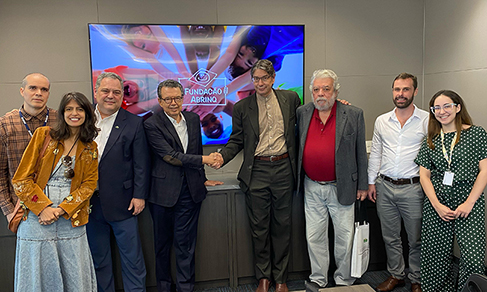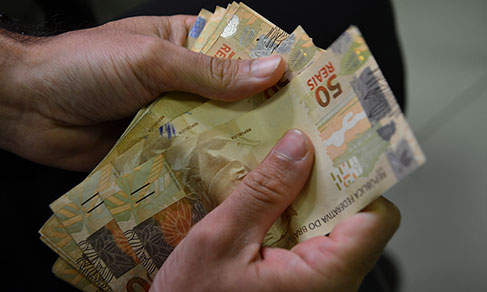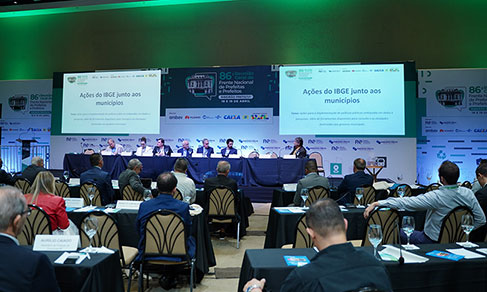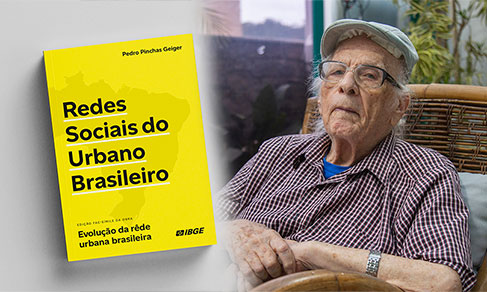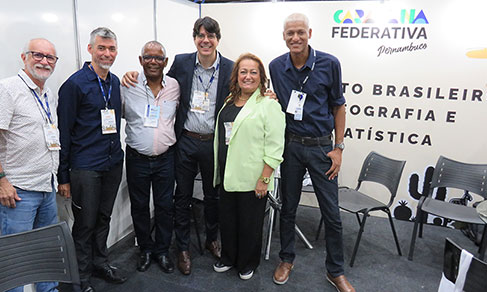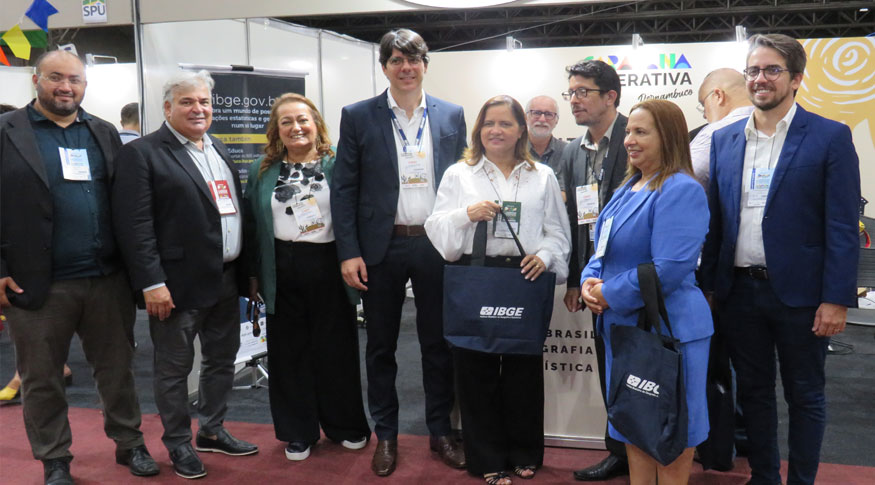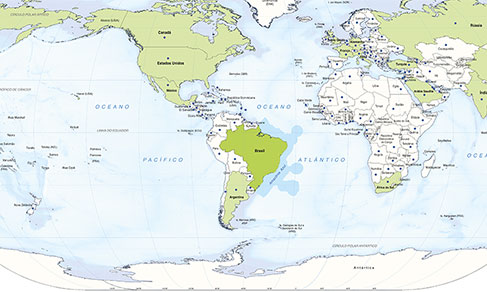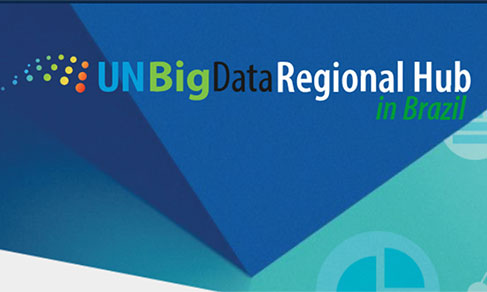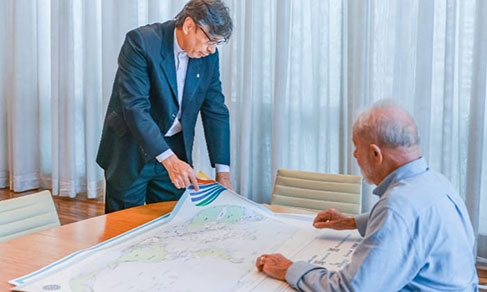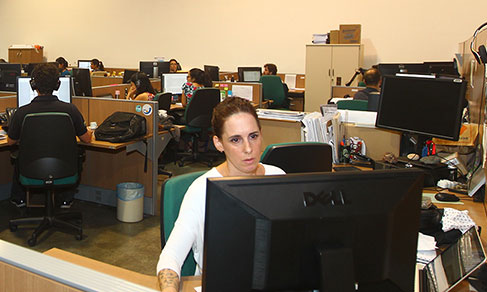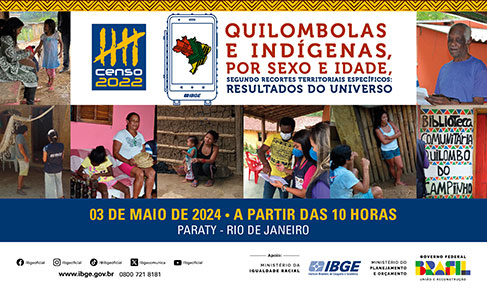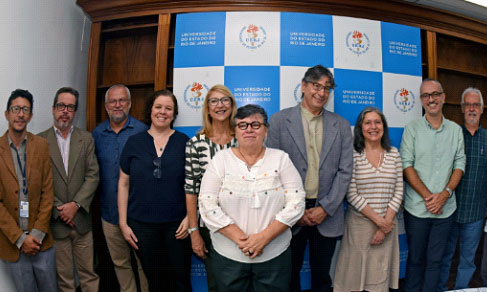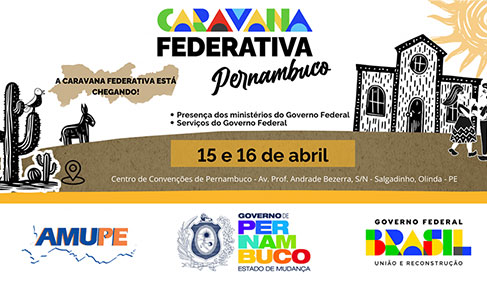2020 Census
IBGE consults quilombola and idigenous representatives
December 10, 2018 10h00 AM | Last Updated: December 13, 2018 11h21 AM
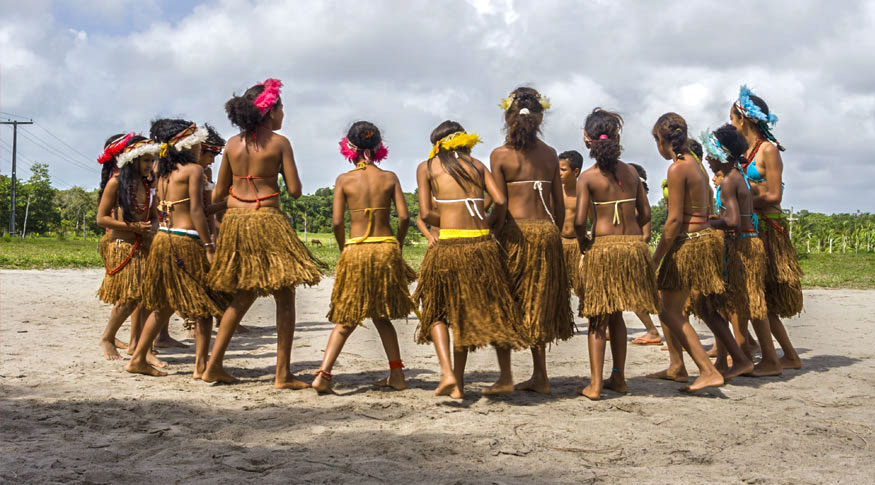
Last week, in its headquarters, in Rio de Janeiro, the IBGE met with representatives from quilombola and indigenous communities to discuss the conduction of the 2020 Population Census. For the first time, the quilombolas will be surveyed, whereas the indigenous, who were already accounted for, will have a new questionnaire to provide enumerators basic information about their people.
Besides the IBGE and the traditional peoples, participants from Incra (National Institute of Colonization and Agrarian Reform), Conaq (National Coordination of Quilombos), Funai (National Indian Foundation), Seppir (Secretariat forPolicies Geared to Racial Equality), the Indian Museum, the National Museum and Palmares Cultural Foundation were also present.
In order to address the topic properly, the IBGE follows ILO's Convention No. 169 when carrying out free consultations in a previously clear way with such populations. “We've started a three-step process of public consultation to present the whole theoretical, methodological, operational and geographic insertion of the quiombolas in the 2020 Census. We've discussed with them all the points, for and against, to proceed in mutual agreement”, says the anthropologist in charge of the IBGE Work Group of Traditional Peoples and Communities, Marta Antunes.
Just as it happened with the indigenous peoples, the first step took place in July, when the result of the first pilot tests in August came out and the changes for the second test, set for March and April 2019, were established, besides the Experimental Census. The last phase will occur in August next year, when the previous discussions will come to the end.
For the anthropologist, such consultations help understand the communities’ expectations in relation to an institute of statistics and geography: “they are populations with their own way of being, doing things and living in their peculiar world, so, not carrying out the consultation can lead us to break cultural and social rules of those populations, endangering the operation itself and the lives of the census takers as well”, says Marta, emphasizing that such a pact makes the IBGE's work easier and improves the quality of the data collected.
IBGE geographer Fernando Damasco, who is also part of the Work Group of Traditional Peoples and Communities, highlights that, in addition to cultural issues, important themes related to the mapping of the communities for the 2020 Census were addressed, as the territorial base and the geographical concepts: “the procedures to be followed by census takers as well as the way the data will be disseminated were taken into consideration, since those aspects are a relevant concern of the quilombolas".
Visibility is the main claim
Despite the concern with technical, cultural and operational aspects of the 2020 Census, the indigenous and quilombola representatives taking part in the consultations emphasized that the most important thing is to give visibility to the needs of each traditional community of the country.
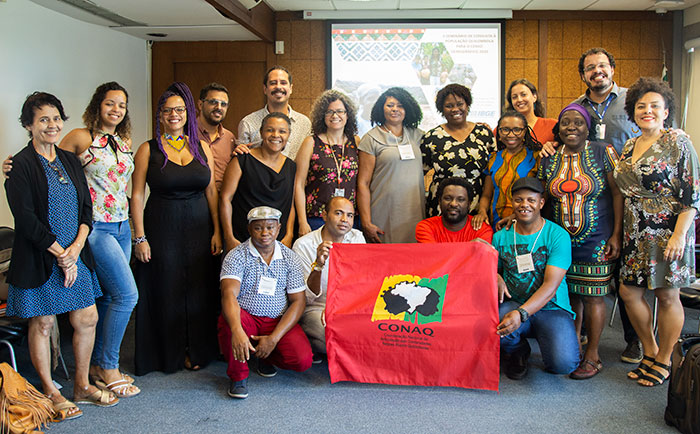
“It is important to get the quilombolas to participate in the census. It is an important victory in a long-aged fight. It is even more pleasant to participate in a process of discussing how the survey will be carried out. This demonstrates respect, which is what we want as communities”, highlights the representative of the National Coordination of the Quilombos, Sandra Andrade, from the Quilombo Carrapatos da Tabatinga, in the city of Bom Despacho (MG).
Knowing how many they are through the census, she expects to go after public policies in the states and municipalities. “Today, we claim and they ask us how many we are, but we don't know that. We live in a reality of conflicts, speculations, in some communities. We are a little afraid, but, at the same time, we want to be seen”, says Sandra.
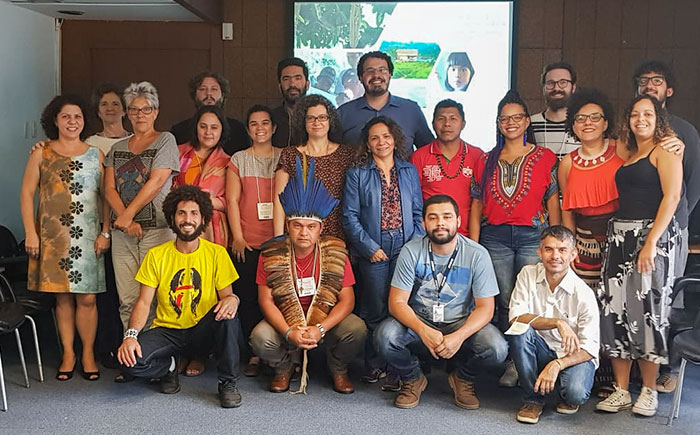
The indigenous representatives also stressed the importance of discussing better representation in the Census. "We have our culture, our originality. We are dealing with the recognition of the right to education, culture, health. All these things are very important for us. We hope we will have more investment in these areas," said the representative of the Rio Negro Indigenous Federation, Adão Francisco, of the Baré people, who live in São Gabriel da Cachoeira (AM).
In turn, the representative of the Terena people, Gilmar Alcântara, highlighted the communication barrier with the indigenous peoples. “There are indigenous communities that only speak their mother tongue and have some difficulties with Portuguese. In my village, people know that household means house, for instance, but some communities don't know that. At many times, the Census questionnaire doesn't make sense for us. This was one of the issues we pointed out”, says the dweller of Buriti Village, in Dois Irmãos do Buriti (MS).
With this preparation work, the Census team hopes to stimulate advances in the studies of traditional communities. “It is important to emphasize that all this preparation work for the Census with the communities becomes especially relevant because the Brazilian State is not very much experienced in the acquisition and treatment of geographical information on traditional communities. This will pave the way for several of surveys related to these populations," concludes IBGE geographer Damasco.




